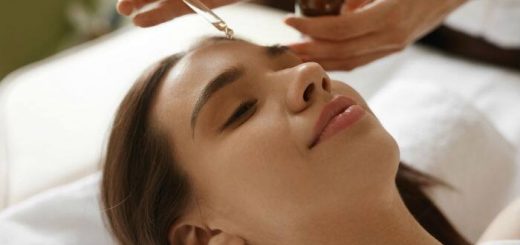Skin Care: Honey To Make Your Skin Glow
When you think of honey, what do you see in your mind? Do you see that little bear container filled with the amber syrup? or, do you see the little girl on the jar of Sue Bee honey that I remember as a kid? Most people have some memory attached to honey. Honey however is proving to be worth so much more than a comfort food-memory maker.
There may be no better way to bring a smooth glow to your skin than by using skin care products containing honey. Honey’s ability to absorb and retain moisture make it an ideal ingredient in many cosmetics as it helps keep skin hydrated and fresh. In fact, history shows that ancient beauties regularly applied a mixture of honey and milk to the face to keep their skin looking young, radiant and smooth.
Honey is also used to cure burns that are caused either by sun-tan or household chores. The unique properties of honey help in preventing the skin from the harmful rays of the sun and maintain the fresh and radiant look of the skin. It also keeps the skin hydrated even after a long exposure to sunlight and therefore prevents dryness.
Honey’s natural antioxidant and antimicrobial properties help to protect the skin from the damage of the sun’s rays while supporting the skin’s ability to rejuvenate and refresh depleted skin. One advantage to using honey as a natural skin care ingredient is for the treatment of acne. Honey absorbs impurities from the pores in the skin, making it an ideal cleansing agent. There is also an increasing number of honey products being introduced to the market for hair care, skin care, hand lotions, facial masks, moisturizers, wound care, etc.
Honey contains powerful antioxidants which fight free radicals and reverse aging. Free radicals are everywhere in the air we breathe, the food we eat, and even the sunlight we love so much. Every moment, the body absorbs oxygen and turns it into energy in a process called oxidation. This process also releases free radicals. Antioxidants slow down aging by neutralizing these free radicals. They perform healing at the deepest cellular level, allowing the benefits to manifest in a myriad of different ways.
Honey is a well known antibacterial and anti fungal agent. It helps disinfect and speed the healing process in wounds, scrapes and burns. In addition to the enzymes found in honey, which may help the healing process, honey also contains antioxidants and flavonoids that may function as antibacterial agents. Pinocembrin is the most abundant flavonoid in propolis, and has been proven to have antioxidant, antibacterial and anti-inflammatory properties.
A 1999 study conducted by the University of Wales Institute found that unpasteurised honey produced an antibacterial action against Staphylococcus aureus, a common bacteria found readily in our environment that can cause infections, especially in open wounds.
Now that research and clinical studies have revealed that bacteria are the cause of infection and other skin conditions, Manuka Honey has become accepted as an extremely valuable resource. Manuka Honey has very powerful antibacterial and antimicrobial properties that create an environment that is impossible for bacteria to survive. Even the resilient MRSA bacterium has not been able to develop a resistance to Manuka Honey. This has become of increasing interest among medical professionals as Staph infections plague our hospitals and communities.



